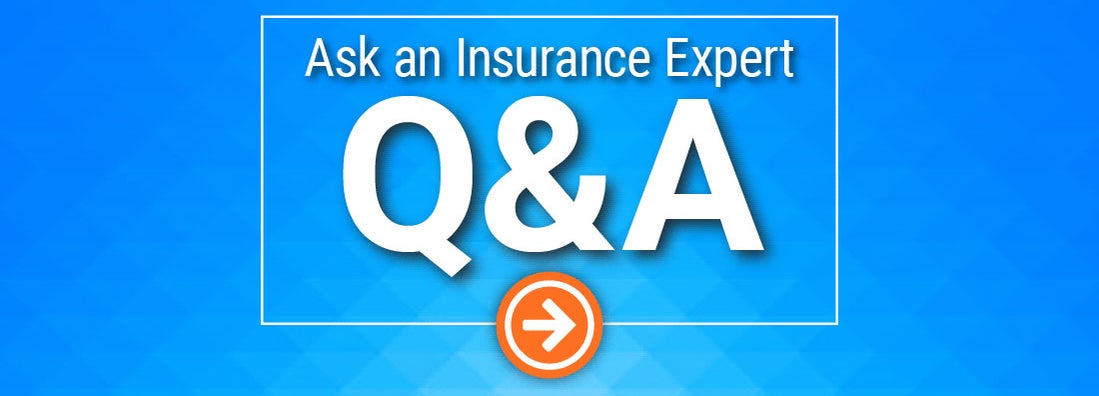Does Insurance Cover Broken Car Windows?

Paul Martin is the Director of Education and Development for Myron Steves, one of the largest, most respected insurance wholesalers in the southern U.S.

Popular Questions:
Does car insurance cover a broken window in my car?
How do I know if my car insurance covers a broken window?
How much damage is covered if my car's window breaks?
How much do I have to pay if I don't have coverage for broken windows?
Expert(s) Found on this Page
Does car insurance cover a broken window in my car?
What happens if my car window gets broken? Does insurance cover it?
It depends on what kind of car insurance you have and on what broke your window.
There are three main types of car insurance coverage. One type, liability, covers the damage you do to other people or property in an accident. This coverage won’t cover you if your car’s window gets broken.
The other two types are called collision coverage and comprehensive coverage (also called other than collision). These cover damage to your own car:
- Collision coverage would cover your car window if it broke in a collision with another vehicle or an inanimate object, like a mailbox.
- Comprehensive coverage would cover your car window if it broke because someone smashed it or during a natural disaster like a hailstorm.
Collision coverage and comprehensive coverage can both cover damage to your window in certain situations. Sometimes glass coverage is not included, however, and you may have to purchase an additional glass coverage policy.
How do I know if my car insurance covers a broken window?
I recently bought car insurance, but I’m not sure if it covers my windshield or windows. How do I know what my car insurance does and doesn’t cover?
To understand the answer to this question, you need to know that there are three main car insurance coverage types: liability, collision, and comprehensive (a.k.a. other than collision). Each covers different situations.
- Liability: Covers damage you do to other people, vehicles or property.
- Collision: Covers damage that other vehicles do to you in a collision. Also covers damage from collisions with inanimate objects, like mailboxes.
- Comprehensive: Covers just about everything else, including theft, natural disasters and collisions with wild animals like deer.
If you have car insurance, then you definitely have liability insurance, since it’s the legally required minimum. But collision and comprehensive coverage are optional, so you may not have them. Check the details of your policy online or in your paper packet to see what’s listed.
If you have comprehensive and collision coverage in addition to your liability coverage, then nearly every situation you might encounter is covered.
However, some insurance companies insure glass differently, under a separate glass coverage policy. It’s good to read the fine print to see if you need to purchase separate glass coverage.
If your car insurance isn’t covering everything you want it to, it’s easy to work with an independent insurance agent and add extra coverage.
How much damage is covered if my car's window gets broken?
My car’s window got smashed in when someone tried to steal my stuff. Will my car insurance pay the full cost of repairs?
That’s going to depend on these two things:
- The size of your deductible
- Your car insurance limit
A deductible is the amount you agree to pay before your insurance kicks in. If you get into an accident and cause $1,000 worth of damage to your car, and your deductible is $500, then you’ll need to pay $500 before your insurance company pays the other $500.
Comprehensive and collision coverage policies usually have a deductible, though there are no-deductible options. Special glass coverage is almost always no-deductible.
A limit is what it sounds like: It’s the limit on how much your insurance will pay.
- Liability policies have higher limits, such as $10,000, $25,000 or $50,000.
- Comprehensive and collision policies, which cover damage to your own car, usually use the actual cash value of your car as a limit.
The actual cash value of your car isn’t what you paid for it. It’s the replacement cost of the car minus depreciation, a.k.a. the amount of value your car loses each year due to age and wear and tear.
So the answer to your question is that your insurance will pay for the cost of repairs minus the deductible (which you may not have, especially if you have glass coverage) and up to the amount of the limit.
How much do I have to pay if I don't have coverage for broken windows?
Is buying the extra coverage worth it? What if I just pay out of pocket if something happens to my car, like a broken window?
You certainly could choose to pay out of pocket! Whether you need collision coverage and/or comprehensive coverage will depend on the value of your car, your budget, and how much savings you have on hand to pay for repairs.
- If you have a cheap car, paying for collision and comprehensive coverage could be more expensive than just paying cash to repair or replace your car. If you have a more expensive car, paying for that extra coverage is more cost-effective.
- If money is tight and you need to save money everywhere you can, then paying extra for premiums might not be worth it to you. But make sure that you enough in savings to cover repairs. Otherwise, you could be left without a usable car in an accident.
- If you don’t have a lot of savings, buying collision and comprehensive coverage ensures that you’ll be able to afford repairs so that you’re not left without a car. But if you have a lot of savings, planning to pay cash for repairs might make more sense to you.
Replacing your car’s windows can be surprisingly expensive—it could cost hundreds of dollars just to replace a single window. And that’s just one potential scenario where collision and comprehensive coverage could swoop in and save the day.
It’s almost always a good idea to have collision and comprehensive coverage, but the ultimate decision is up to you.
